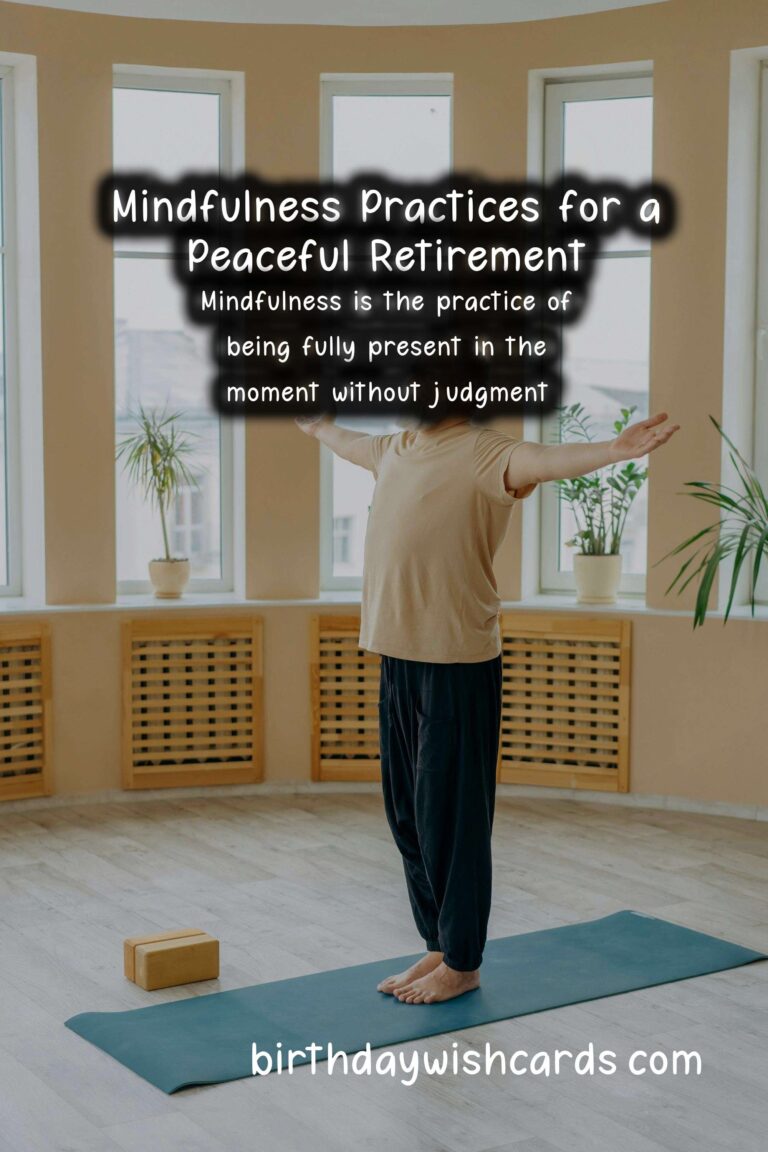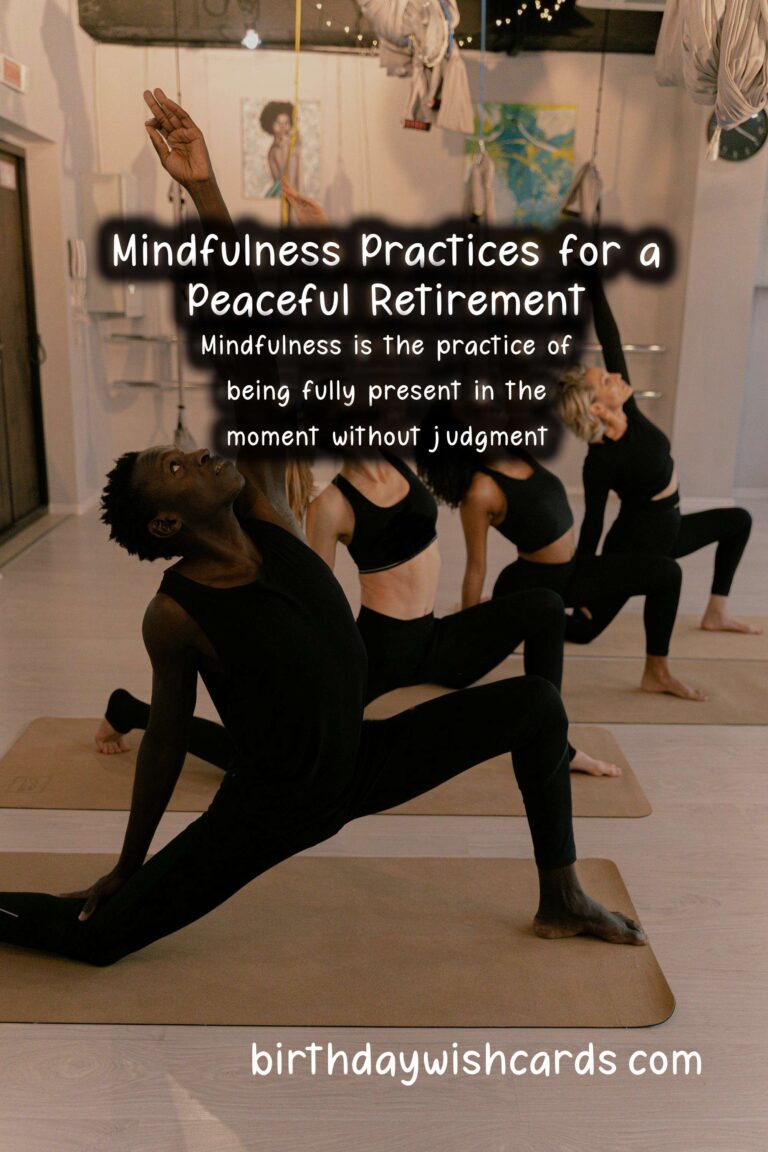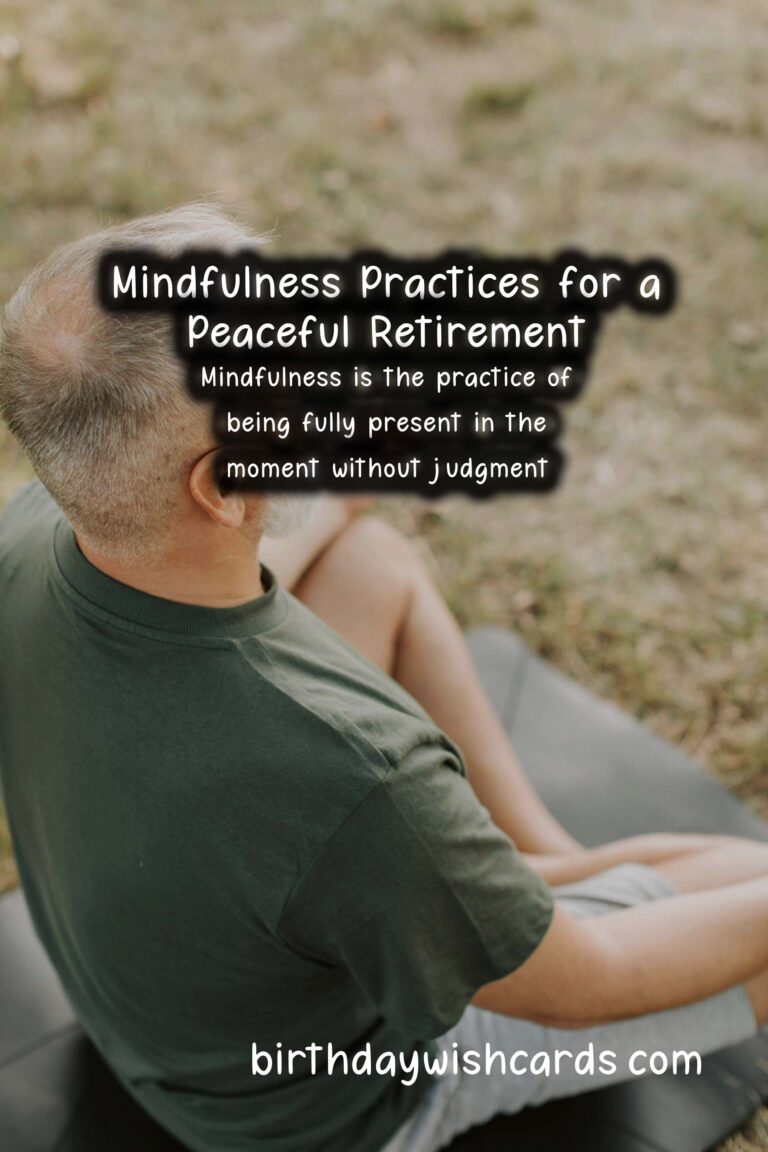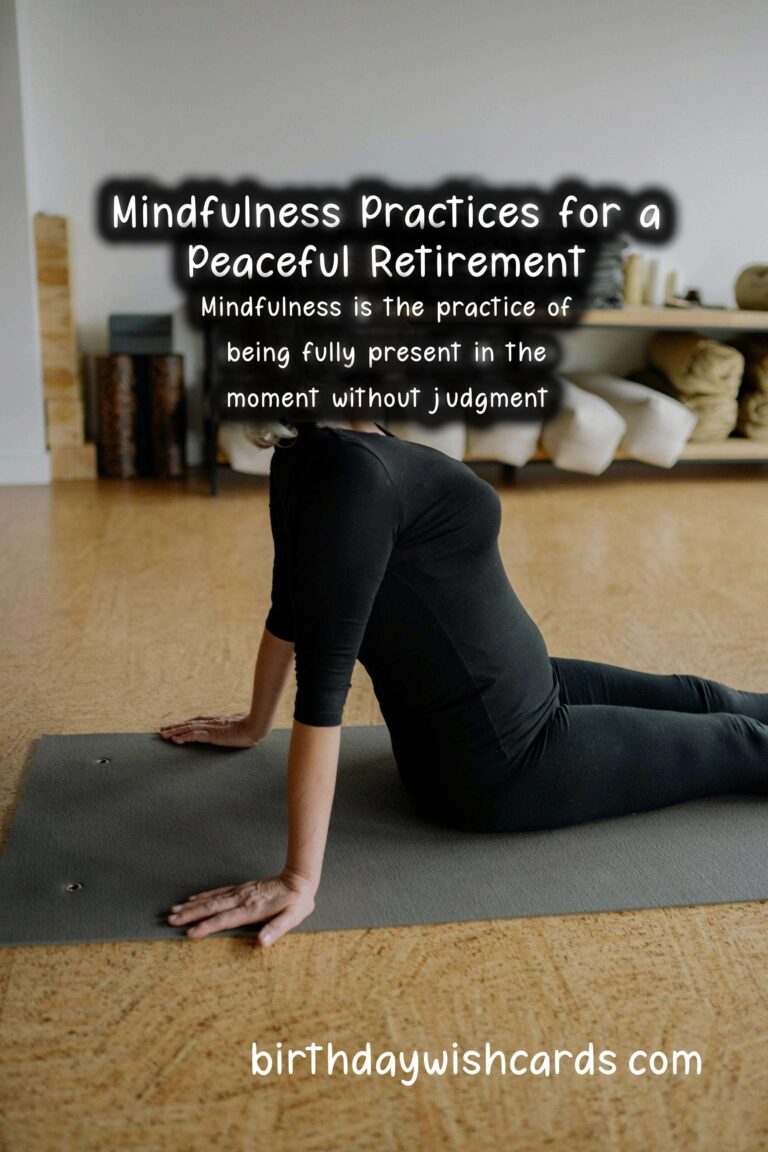
As you step into retirement, you may find yourself reflecting on the past and considering what lies ahead. This transition can be both exciting and challenging. Mindfulness practices can help you embrace this new chapter with a sense of calm and purpose.
Understanding Mindfulness
Mindfulness is the practice of being fully present in the moment without judgment. It involves observing your thoughts and feelings without being overwhelmed by them. This practice has been shown to reduce stress, improve mental clarity, and enhance emotional regulation.
The Importance of Mindfulness in Retirement
In retirement, life can become significantly different. You might feel a loss of routine, identity, or purpose. Mindfulness can help you navigate these changes by fostering a greater awareness of your experiences, helping you to appreciate the present moment, and supporting your emotional well-being.
Mindfulness Practices for Your Retirement Journey
1. Meditation
Meditation is one of the most well-known mindfulness practices. It can take many forms, including guided meditation and loving-kindness meditation. Set aside a few minutes each day to sit quietly, focus on your breath, and meditate.
2. Mindful Walking
Walking can be a powerful form of mindfulness. Pay attention to each step you take, the sensation of your feet on the ground, and your surroundings. Notice the sounds, smells, and sights around you as you walk.
3. Gratitude Journaling
Take time each day to write down things you are grateful for. This practice can shift your focus from what you miss in your old life to the joy and abundance present in your current life.
4. Yoga
Yoga combines physical movement with mindfulness. It can improve your physical health while providing a calm, meditative experience. Consider joining a local class or practicing at home through online videos.
5. Deep Breathing Exercises
Deep breathing is a simple way to bring yourself back to the present moment. Take deep, slow breaths, inhaling deeply through your nose and exhaling through your mouth. This practice can be done anytime you feel stressed or overwhelmed.
Building a Mindful Routine
Creating a routine that incorporates mindfulness can provide structure to your days in retirement. Try to set aside specific times for your mindfulness practices, whether it’s a morning meditation or an evening gratitude journaling session. Consistency is key to making mindfulness a lasting part of your life.
Connecting with Others
Mindfulness doesn’t have to be an isolated practice. Joining a mindfulness group or attending workshops can connect you with others who share similar interests. This community aspect can enhance your motivation and provide support along the way.
Mindfulness and Aging
Aging can bring about many changes, and mindfulness can provide tools to face these changes positively. By practicing mindfulness, you can cultivate resilience, improve your mental health, and enhance your quality of life as you grow older.
Overcoming Obstacles to Mindfulness
It’s normal to encounter obstacles when starting a mindfulness practice, especially if you’re new to it. Here are some tips to help you overcome common challenges:
- Time Management: Life can be busy, so schedule mindfulness into your day like any other important appointment.
- Restlessness: It’s common to feel restless during meditation. When thoughts arise, gently acknowledge them and return your focus to your breath.
- Distractions: Create a peaceful environment for your practice. Turn off your phone and find a quiet space where you won’t be disturbed.
Complementing Mindfulness with Other Practices
Mindfulness can be combined with other practices for a well-rounded approach to well-being in retirement. Consider engaging in activities such as:
- Art and Creativity: Engage in creative activities like painting, drawing, or crafting. These activities can help you express your emotions and enhance mindfulness.
- Nature Therapy: Spend time in nature to boost your mood and mental clarity. Hikes, gardening, or simply sitting outdoors can bring great mindfulness benefits.
- Healthy Living: Exercise, a balanced diet, and proper sleep can enhance your mindfulness practice and overall well-being.
Conclusion: Embracing Mindfulness in Retirement
By incorporating mindfulness practices into your retirement, you can cultivate peace, purpose, and connection. Whether through meditation, mindful walking, or other techniques, being present can help you navigate this exciting and transformative time in your life.
Mindfulness is the practice of being fully present in the moment without judgment. In retirement, life can become significantly different. 













